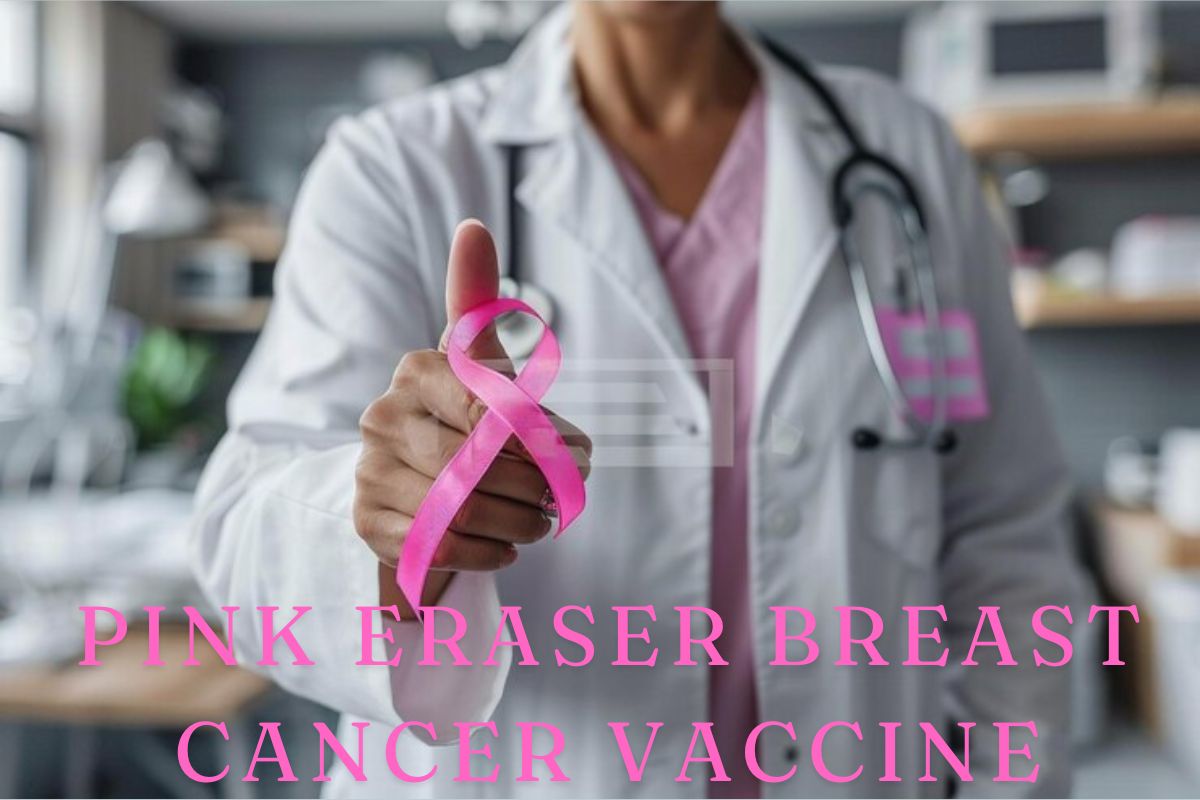BREAST CANCER
20+ UNCOMPLICATED WAYS TO COMFORT YOUR BREAST CANCER SURVIVOR FRIEND

DO YOU REALLY KNOW HOW TO HELP HER? WITHOUT MAKING IT ALL ABOUT YOU?
Should I call? Visit? OMG! How could this happen? Will she be okay? What does this mean? How can I help? What do I do….
You could do the basic stuff (basic in this case doesn’t mean bad)
If the person who was recently diagnosed is someone who is not very close to you – a co-worker, a church friend, the lady at the dry cleaners who always starches your shirts just right – then flowers, or candy or maybe a nice bottle of wine (with a gentle sympathy/get well card) is sufficient. I mean, this is someone you know, someone you’re acquainted with but not necessarily someone that you have major memories with.
If the person diagnosed can’t tell a story about you that makes you blush, laugh or cringe in terror at the memory of it… keep the gift and the acknowledgment pretty simple and basic. It’s about respecting the privacy of the patient. Don’t overstep your boundaries.
A diagnosis of breast cancer is an extremely sensitive and private matter. The new patient-survivor may not have really digested what has just happened to her life. The last thing she needs is to have to try to explain something so personal to someone she really only knows in a surface way. Respect her privacy and keep your gift acknowledgment simple but appropriately empathetic.
If you’re closer than an acquaintance or you feel led to do something that really helps… you have to get more personal with your effort
The help she REALLY needs (and may not ask for)
This list is in no particular order.
- Drive her to/from daily radiation treatments or chemo treatments. Chemotherapy and radiation treatments are physically draining. A ride from a trusted friend eases your mind.
- Cook meals and deliver them to your friend. (for an additional boost of greatness, be sure to include disposable plates and eating utensils, cups and drinks)
- Take the kids for a day or overnight so the patient and spouse can rest
- Go over to her house once a week to clean and tidy up (if you have to disguise it as visiting with nervous hands… that’s okay)
- Call her regularly – not too often because she’s going to be really tired and in need of rest. But regular calls with good friends means that she hasn’t been forgotten. That matters.
- Offer to sit with her during her chemotherapy infusion (they can take a few hours to complete).
- Be sure to ask her how she wants to experience her chemotherapy (does she prefer to chat endlessly about anything but cancer, laughing at terrible jokes and funny movies, being quiet and non-disruptive…ask her what works best for her and then do that).
- ALWAYS offer your help. Even when she’s being stubborn and even if she says no every time. Make the offer.
- Gift cards for food are great. Example: A $50 gift card to McDonalds or Starbucks can be used for frozen smoothies/cold drinks that help ease the discomfort of mouth sores.
- A care basket of kids crafts for the children.
- Classmates of the kids could offer to host a sleepover to give mom & dad a break and to give some normalcy for the children.
- Take your friend on a car ride. Doesn’t have to be a super detailed trip, just an opportunity to get out of the house and to spend some time with a friend. Doing nothing like friends sometimes do.
- Go to the grocery store for her. Your friend may not have enough energy to grocery shop for herself or her family. A simple task that makes a huge impact. (If you can afford to pay for the groceries too, even better)
- Invite the husband/spouse/significant other out for a day or an evening to give him a break and offer some social support.
- Be a good listener. Seriously… just listen. Sometimes we need to talk and get some things off of our chest.
- Send a card – through the mail. You remember those paper things we used to look forward to receiving and used to send often? Yes… send those. Send one. Send one every week, every month. Opening mail that isn’t something from the hospital or the insurance company… that doesn’t bring any bad news, just comforting thoughts that someone cares… such a good feeling.
- Keep the patient first, always. People with good intentions of being supportive very often make having breast cancer about their fear and their sadness, instead of focusing on the patient and her needs and fears and concerns. Keep the patient first.
- Drop off a goodie bag with pampering items. (fluffy socks, really hydrating lotion -unscented preferably, bath salts, a thick blanket, etc.)
- Make sure that your schedule is flexible because changes happen constantly.
- Go to appointments with them. Actually sit with them when they talk with the oncology team. Pay close attention and take notes.
- Be an advocate for them. Especially if you plan to be at every appointment, know to speak up for their needs and concerns.
- Remember that chemo brain is real and be forgiving of forgetfulness. Patients can often forget certain aspects of their treatment that concern them, or questions that they thought of since their last appointment. A lot of information is given at each appointment and things can be missed or forgotten.
- Always carry a travel bag with certain necessities, including a vomit bag. (A clean shirt, a scarf, maybe a travel blanket, etc.) Anything is possible after chemo, be prepared.
- Encourage the patient to take time for their relationship. Cancer takes over your life, carve out time for dates (dates at home can be really nice if she’s too weak or tired to go out)
- Take pictures of your friend. She may not like it… but get pictures of her journey. I didn’t take a lot of pictures while I was in treatment but in hindsight, I really wish I had. I treasure the few pictures I do have from that time in my life.
- Use technology to stay connected. Facetime, Google hangouts, Skype, twitter, even text messages. Whatever you can use to stay connected to your friend, do that. There may be times during her treatment that she can’t have visitors, but she may be able to get on a google hangout and talk for a few moments.
- Money, gift cards, surprise bill payments – monetary assistance will likely be extremely helpful. Unless the survivor is independently wealthy or financially well-fixed, the cost of cancer will become overbearing. If you can afford to do so (and there’s no shame if you cannot), a financial gift will likely help a lot.
At the same time… there are a few things that you should NOT do
- Don’t question the patient’s decisions for treatment. It is hard enough to make the decisions you need to make about your treatment. She wants to save her life, probably more than you… don’t diminish the choices she’s made.
- Never say “maybe you should have”. Unless you are an oncologist, she’s probably not going to appreciate your second guessing of the hardest decisions she’s ever had to make.
- Don’t allow the patient to feel like giving up. Keep her encouraged. But… do so with transparency and honesty. Do not be overly perky or chipper (unless that’s your natural state) and make it seem as though this isn’t a big deal. It is. But still encourage her to keep going.
- Don’t be afraid to talk about cancer. She probably wants to discuss it. She’s also probably scared to discuss it with you because she doesn’t want to overwhelm you. Talk about the disease, it helps.
- NO stories about someone you knew with breast cancer who died. I promise you… this conversation does not do what you want it to do. It only freaks her out more. Save it.
- Don’t be negative around your friend. There is a fine line between being honest but upbeat and being unnaturally perky/optimistic. Positive thoughts and conversations help a lot.
Things that survivors can (and should) do
- Survivors should reach out to other survivors (when they feel strong enough to do so). Let new survivors know that they are not alone. Cancer can feel very isolating. A kind talk with someone who understands what “this” is all about, helps immensely.
- While in treatment pamper yourself, eat right and rest as much as possible.
- Don’t act like everything is okay and nothing is happening. It’s not good for you to delude yourself. And it’s not good for the people who love and care for you either.
- If you feel down or angry or negative… it is okay.for the brighter side. You’re human. Get mad. This is something to be angry about.
- Find someone to talk to – a counselor, a therapist, the social worker at the hospital, a good friend, your pastor, your parent, someone trustworthy and who cares about your well-being.
- If you like social media, find a group of survivors to join. Facebook has many breast cancer groups. You can search twitter and instagram #breastcancer hashtags to find like minded people.
- Definitely consider joining a support group. Being able to discuss what you’re going through, what your concerns are and to ask the difficult questions with people who know is invaluable. Ask your oncologist or the social worker at your cancer center about support groups.

BREAST CANCER
10 Types of Cosmetic Surgery: You Need to Know

Cosmetic surgery includes various procedures designed to improve appearance and enhance self-esteem. Knowing the different types can assist individuals in making informed choices about their aesthetic aspirations. From surgical interventions like rhinoplasty and breast augmentation to less invasive treatments such as Botox and dermal fillers, each option presents distinct advantages. Whether the goal is to refine facial features, improve body shape, or rejuvenate the skin, cosmetic surgery offers personalized solutions. This guide highlights ten common types of cosmetic surgery, helping you explore your options and select the best path for your aesthetic journey.
Rhinoplasty
Rhinoplasty, often called a nose job, is a surgical procedure that reshapes the nose to improve facial balance. This surgery can correct issues related to size, shape, and nostril width, as well as address functional concerns like breathing difficulties. Many patients opt for rhinoplasty for cosmetic reasons or to fix deformities resulting from injuries. The procedure generally involves making incisions inside the nose or across the base to access the underlying bone and cartilage. Recovery typically spans a few weeks, with the final results becoming apparent once the swelling subsides. Rhinoplasty can have a profound effect on an individual’s self-image and overall look.
Breast Augmentation/Reduction
Breast augmentation and Breast Reduction ( Aka Brustverkleinerung ) is a popular cosmetic surgery that enhances the size and shape of the breasts using implants or fat transfer. Women frequently seek this procedure to enhance body proportions, restore breast volume after weight loss or pregnancy, or boost self-confidence. The surgery entails placing implants either beneath the breast tissue or the chest muscle, with various shapes and sizes available. Recovery times can differ, but many patients are able to resume normal activities within a few weeks. This procedure can significantly alter how individuals view their bodies and elevate self-esteem, making it a popular choice.
Tummy Tuck (Abdominoplasty)
A tummy tuck, also known as abdominoplasty, is a surgical procedure that aims to eliminate excess skin and fat from the abdomen while tightening the underlying muscles. This procedure is especially sought after by those who have undergone significant weight loss or women after pregnancy. The surgery involves a horizontal incision made across the lower abdomen, which allows for the removal of loose skin and the tightening of abdominal muscles, resulting in a flatter stomach. Recovery usually requires several weeks of rest, but many patients find the results to be life-changing, boosting their confidence in their body shape and enhancing their overall appearance.
Facelift (Rhytidectomy)
A facelift, or rhytidectomy, is a surgical procedure designed to diminish visible signs of aging in the face and neck. It entails the removal of excess skin, tightening of underlying tissues, and repositioning of fat to achieve a more youthful look. This surgery can effectively address sagging skin, deep creases, and loss of facial volume. Typically, incisions are made around the ears and hairline, with recovery taking several weeks. Many patients report a boost in self-esteem and a refreshed appearance following the surgery. A facelift can also be combined with other procedures, such as eyelid surgery, for a more comprehensive rejuvenation.
Blepharoplasty
Blepharoplasty, or eyelid surgery, is a cosmetic procedure that addresses drooping eyelids by removing excess skin or fat from both the upper and lower eyelids. This surgery not only improves appearance but can also enhance vision by eliminating obstructions caused by sagging skin. The procedure involves making incisions along the natural folds of the eyelids, which helps to minimize visible scarring. Recovery generally includes some swelling and bruising, but most patients can resume their daily activities within a week. Many individuals report feeling more alert and youthful after the surgery, making it a favored option for facial rejuvenation.
Botox Injections
Botox injections are a popular cosmetic treatment that temporarily smooths out wrinkles and fine lines by relaxing the muscles in the face. Often applied to areas like the forehead, around the eyes, and between the brows, Botox helps create a more youthful and refreshed look. The process involves a few quick injections, with results usually visible within a few days and lasting for several months. Many people appreciate Botox for its convenience and minimal recovery time, allowing them to enhance their appearance without undergoing surgery. Regular treatments can help maintain a youthful look, making Botox a favored choice for those interested in non-surgical rejuvenation.
Dermal Fillers
Dermal fillers are injectable materials designed to restore volume and smooth out wrinkles and fine lines, enhancing the contours of the face. Common areas for treatment include the cheeks, lips, and under the eyes. These fillers can be made from various substances, such as hyaluronic acid, which is naturally found in the body, making it a safe and effective option for facial rejuvenation. The procedure is quick, with immediate results that can last from several months to a year, depending on the type of filler used. Dermal fillers are a sought-after option for individuals looking to achieve a youthful appearance without invasive surgery.
Chin Augmentation
Chin augmentation is a cosmetic procedure aimed at improving the shape and size of the chin, which helps achieve better facial balance. This can be done using implants or by repositioning the chin bone. Many people choose this surgery to enhance facial symmetry or to create a more defined jawline. The procedure typically involves making an incision either under the chin or inside the mouth to place the implant or adjust the bone. Recovery times can vary, but most patients are able to return to their normal activities within a few weeks. Chin augmentation can greatly improve facial proportions, leading to greater self-confidence and satisfaction with one’s appearance.
Brazilian Butt Lift
The Brazilian Butt Lift is a sought-after cosmetic surgery designed to enhance the shape and size of the buttocks using fat transfer. This procedure starts with liposuction to extract fat from areas like the abdomen, thighs, or hips, which is then purified and injected into the buttocks. The result is a natural look and feel, making it a popular choice for those wanting a fuller figure. Recovery usually requires patients to avoid sitting directly on their buttocks for a few weeks to promote proper healing. Many appreciate the advantage of achieving both body contouring and buttock enhancement in a single procedure.
BREAST CANCER
The Pink Eraser Breast Cancer Vaccine: Revolutionizing the Fight Against Cancer

Breast cancer remains one of the most challenging health crises of our time, affecting 1 in 8 women globally. But here’s a spark of hope: a groundbreaking initiative called the Pink Eraser Breast Cancer Vaccine is on the horizon, offering a potential game-changer in the fight against this deadly disease. This isn’t just another research project—it’s a revolutionary step toward a future where we can prevent breast cancer before it even begins.
Imagine a world where a simple vaccine could protect millions from ever facing the diagnosis. Sound impossible? It’s closer than you think. Driven by cutting-edge science and supported by the Cancer Vaccine Coalition, the Pink Eraser project is leading us to a momentous breakthrough. In this article, we’ll dive into what this means for you, how it works, and the incredible ripple effect it could have across healthcare.
No fluff—just facts. Let’s explore how this vaccine might soon be changing the world.
What is the Pink Eraser Breast Cancer Vaccine?
The Pink Eraser Breast Cancer Vaccine project is an ambitious initiative aimed at developing a preventive vaccine for breast cancer. Spearheaded by the Cancer Vaccine Coalition, this project strives to create a vaccine that can offer immunity against certain types of breast cancer. Much like vaccines that prevent diseases like polio or measles, this vaccine could teach the body’s immune system to recognize and attack breast cancer cells before they form dangerous tumors.
Early research into this vaccine has been promising, with scientists making significant strides in identifying the proteins and markers unique to breast cancer cells. If successful, this vaccine could revolutionize cancer prevention, especially for high-risk individuals. The Pink Eraser Breast Cancer Vaccine could significantly reduce the number of breast cancer cases worldwide, offering a beacon of hope for many.
Also Read: HOW TO KNOW IF YOU HAVE BREAST CANCER
The Role of the Cancer Vaccine Coalition
At the heart of the Pink Eraser Breast Cancer Vaccine effort is the Cancer Vaccine Coalition, a global organization dedicated to researching and developing vaccines to combat various forms of cancer. The coalition brings together experts in immunology, oncology, and public health to create life-saving vaccines. This collaborative approach helps to accelerate research and ensure that the vaccine development process incorporates the latest scientific advancements.
The Pink Eraser Breast Cancer Vaccine is just one of the coalition’s projects, but it is quickly becoming one of the most talked-about. As part of a broader effort to find immunotherapy solutions for cancer, this vaccine represents a key piece of the puzzle in the global fight against breast cancer.
How the Pink Eraser Breast Cancer Vaccine Works
Like other vaccines, the Pink Eraser Breast Cancer Vaccine works by training the immune system to recognize and fight off specific threats. In this case, the vaccine targets proteins that are typically found on the surface of breast cancer cells. When injected, the vaccine teaches the body’s immune cells to identify and destroy these proteins, preventing them from forming tumors.
This preventive approach is especially important for individuals with genetic predispositions to breast cancer, such as those with BRCA1 or BRCA2 gene mutations. The vaccine could be administered to individuals before they develop cancer, effectively reducing their risk of ever getting the disease.
Challenges in Cancer Vaccine Development
While the idea of a breast cancer vaccine is exciting, it’s important to recognize the challenges that come with developing such a treatment. Cancer is incredibly complex, with hundreds of different types and subtypes, each with its own unique characteristics. Creating a vaccine that works across all types of breast cancer—or even a majority of them—is a monumental task.
Furthermore, ensuring that the vaccine is safe and effective requires extensive testing in clinical trials. Researchers must be certain that the vaccine will not cause harmful side effects or inadvertently trigger other diseases. The DC Circuit court plays a role in regulating clinical trials and ensuring that all vaccines, including the Pink Eraser Breast Cancer Vaccine, undergo rigorous testing before they’re approved for public use.
Pink Eraser Art and Breast Cancer Awareness
The name “Pink Eraser” in the context of this project isn’t just a clever title. It also ties into a broader cultural movement focused on breast cancer awareness. Pink eraser art, a form of creative expression that uses pink erasers as a symbol for breast cancer, has grown in popularity. Artists and activists use these simple tools to create powerful pieces that highlight the fight against breast cancer, often displaying their work in public galleries or sharing it on social media platforms like TikTok.
This art form has become a powerful tool for raising awareness about breast cancer and advocating for more research funding. The symbolism of the pink eraser—something that can wipe away mistakes—serves as a metaphor for erasing the impact of breast cancer from our lives.
The Intersection of Cancer Research and Popular Culture
While cancer research is a highly scientific and technical field, it often intersects with broader cultural trends and societal movements. For example, platforms like TikTok have become a popular way to share health-related content, including breast cancer prevention tips and awareness campaigns. It’s not uncommon to see TikTok influencers sporting leggings legs in videos as part of breast cancer awareness challenges, all designed to get people talking about the disease and the importance of early detection.
Moreover, companies like Starbucks and KFC have jumped on the bandwagon by launching breast cancer awareness campaigns. Starbucks, for instance, has introduced specialty drinks like the olive oil coffee to support breast cancer research, while KFC has promoted items like their popular mashed potato bowls in fundraising efforts for cancer research.
Child Tax Credits and Health Research
Government initiatives such as child tax credits have also played an indirect role in health research funding. By providing financial relief to families, tax credits can free up resources for people to invest in their health, including preventive care like vaccines. Some cancer research organizations have even advocated for tax credits as a way to promote better healthcare outcomes, especially in vulnerable populations.
Other Medical Breakthroughs: Alzheimer’s Growth Hormone and Newborn Great White Sharks
While the Pink Eraser Breast Cancer Vaccine project is a breakthrough in its own right, it’s part of a larger trend of medical innovation. For instance, researchers are exploring the potential of Alzheimer’s growth hormone treatments to slow the progression of neurodegenerative diseases. This research, while not directly related to breast cancer, shares a similar goal: to harness the power of the body’s natural systems to fight disease.
Additionally, scientists are studying the behavior of newborn great white sharks to understand how their immune systems protect them in the wild. These studies could provide insights into how human immune systems can be bolstered against diseases like cancer.
The Future of the Pink Eraser Breast Cancer Vaccine
The Pink Eraser Breast Cancer Vaccine is still in the development phase, but the future looks promising. As more funding and research are directed toward the project, it’s only a matter of time before clinical trials begin, and we get closer to seeing a breast cancer vaccine available to the public.
The Cancer Vaccine Coalition continues to push the envelope, working tirelessly to ensure that this vaccine and others like it reach the people who need them most. If successful, the Pink Eraser Breast Cancer Vaccine could change the way we think about cancer prevention forever.
FAQs
What is the Pink Eraser Breast Cancer Vaccine?
The Pink Eraser Breast Cancer Vaccine is a project aimed at creating a preventive vaccine for breast cancer. The vaccine would help the immune system recognize and attack breast cancer cells before they form tumors.
How does the vaccine work?
The vaccine targets proteins specific to breast cancer cells, teaching the immune system to destroy these cells before they can cause harm.
Who is behind the Pink Eraser Breast Cancer Vaccine?
The Cancer Vaccine Coalition, a global organization focused on developing vaccines to combat cancer, is leading the Pink Eraser Breast Cancer Vaccine project.
What role does the DC Circuit play in vaccine development?
The DC Circuit court ensures that vaccines, including the Pink Eraser Breast Cancer Vaccine, undergo rigorous clinical testing to guarantee their safety and efficacy.
How does pink eraser art tie into breast cancer awareness?
Pink eraser art is a form of creative expression used to raise awareness about breast cancer. Artists use pink erasers as a symbol to highlight the importance of breast cancer research.
What other medical breakthroughs are happening alongside this vaccine?
In addition to cancer vaccines, researchers are making progress in areas like Alzheimer’s treatments, with growth hormones being studied as a potential way to slow disease progression.
BREAST CANCER
Leveraging Text-to-Speech AI for Better Breast Health Communication

In today’s digital age, technology is always evolving, offering novel solutions to a variety of industries, including healthcare. Text-to-speech (TTS) AI is an emerging technology that is having a big influence. This technology turns written information into spoken speech, hence improving accessibility and communication across different disciplines. When it comes to breast health, clear communication is essential for education, awareness, and support. Using TTS AI, particularly free versions, can greatly enhance how breast health information is distributed and absorbed. In this blog article, we’ll look at the advantages of employing text-to-speech AI-free solutions to improve breast health communication.
Understanding text-to-speech AI
Text-to-Speech AI is a type of artificial intelligence that reads digital text out loud. This technology generates human-like speech with powerful algorithms and natural language processing. TTS AI solutions may be utilized on a variety of platforms, including computers, smartphones, and smart speakers, making them extremely adaptable and accessible.
There are numerous text-to-speech AI free tools available online that provide basic functions at no cost. These technologies can be game changers for people and organizations trying to improve their communication strategies without making large financial investments.
Benefits of Text-to-Speech AI in Breast Health Communication
1. Increased Accessibility
One of the most notable benefits of employing text-to-speech AI-free solutions for breast health communication is increased accessibility. Many people, particularly those with visual impairments, reading issues, or cognitive disabilities, may struggle to access written text. TTS AI can bridge this gap by turning text to speech, allowing everyone, regardless of ability, to access and understand breast health information.
For example, a visually impaired woman can utilize a TTS AI tool to listen to an article about the necessity of regular breast self-examination. This accessibility can help more people take control of their breast health.
2. Improved learning and retention
Listening to material can be more effective than reading, particularly for complex or comprehensive content. TTS AI can assist consumers in understanding and remembering breast health information by offering an audio-learning alternative. Hearing the content might make it more engaging and memorable.
Consider a complete guide to recognizing breast cancer symptoms. Listening to this tutorial through a TTS AI tool can help people digest the information more efficiently, potentially leading to earlier discovery and better results.
3. Convenience and Flexibility
Text-to-speech AI-free technologies provide simplicity and flexibility when consuming breast health information. Users can listen to information while multitasking, such as driving, exercising, or performing domestic tasks. This flexibility may increase the possibility that people will engage with breast health information frequently.
For example, a busy professional may not have time to read a lengthy article about breast cancer prevention. They can, however, listen to the same content via a TTS AI tool during their journey, making it easier to stay informed.
4. Personalisation & User Engagement
TTS AI can be customized to meet individual preferences, increasing user engagement. Users can select multiple voices, speaking speeds, and specific sections of text to listen to. This personalization can enhance the experience and adjust it to the demands of each individual.
Consider a breast health website that has TTS AI capabilities, allowing visitors to choose their favorite voice and listening pace. This personalized experience can increase the attraction and accessibility of the content, motivating visitors to learn more.
Using Text-to-Speech AI for Breast Health Communication
1. Breast Health Websites and Blogs
Breast health websites and blogs are excellent resources for education and awareness. Integrating AI-free text-to-speech technologies into these systems can dramatically improve their usability and accessibility. By offering the option to listen to articles, instructions, and blog entries, these websites may reach a larger audience.
TTS AI tools can be embedded in websites, allowing users to listen to content by clicking a button. This function is especially useful for elderly citizens, people with disabilities, and non-native English speakers who may find it simpler to interpret spoken language.
2. Educational videos and webinars
Educational videos and webinars are effective tools for communicating about breast health. Incorporating TTS AI into these formats can increase their inclusivity. For example, adding TTS-generated voiceovers to video content can make the information more accessible to people who are deaf or hard of hearing by providing another way to absorb it. Organizations can also develop audio versions of their video material, allowing viewers to access information in several formats based on their preferences.
3. Social media and campaigns
Social media channels are vital for raising awareness and connecting with the community. Text-to-speech AI-free solutions can help improve the accessibility of social media information. For example, breast health promotions can include audio descriptions of photos and videos to make the content more inclusive.
Social media posts with TTS functionality can reach a wider audience, ensuring that important breast health information is available to all users, regardless of ability.
4. Patient Support and Counselling
TTS AI can also help with patient assistance and counseling. TTS AI solutions can help healthcare practitioners develop audio versions of educational materials, instructions, and patient support services. This might be especially helpful for those who prefer to listen to information or have difficulty reading.
A breast cancer support group, for example, might provide audio materials developed with TTS AI to members as an alternate means of accessing information and assistance.
Conclusion
Leveraging text-to-speech AI-free tools for breast health communication offers numerous benefits, including improved accessibility, enhanced learning and retention, convenience, and personalization. By integrating TTS AI into various platforms and formats, organizations and individuals can ensure that breast health information reaches a wider audience and is accessible to everyone.
As technology continues to advance, the potential for TTS AI in healthcare communication will only grow. Embracing these tools can lead to more inclusive and effective breast health education, ultimately empowering individuals to take charge of their health and well-being.
-

 NEWS1 year ago
NEWS1 year agoSearchinventure: Redefining the Digital Experience
-

 HEALTH1 year ago
HEALTH1 year agoUnveiling the //vital-mag.net blog: Your Gateway to Health and Wellness
-

 NEWS1 year ago
NEWS1 year agoThe Alicia Case in Atlanta: A Deep Dive
-

 FASHION2 years ago
FASHION2 years agoHow to Style Floral Long-Sleeve Homecoming Dresses for a Glamorous Look
-

 Pets2 years ago
Pets2 years agoUltimate Strength: Heavy-Duty Tactical Dog Collars for Large Breeds
-

 BUSINESS1 year ago
BUSINESS1 year agoPedro Vaz Paulo: A Visionary Business Consultant Driving Success
-

 NEWS1 year ago
NEWS1 year ago2023-1954: A Journey Through the Decades
-

 TECHNOLOGY2 years ago
TECHNOLOGY2 years agoThe Evolution of Technology: From 1954 to 2023
